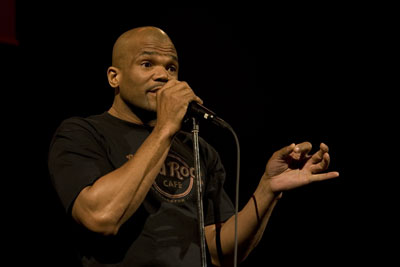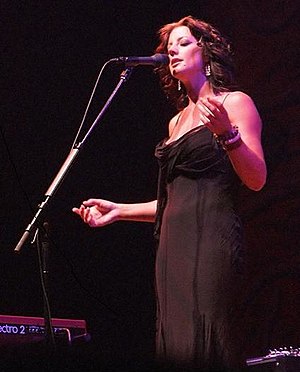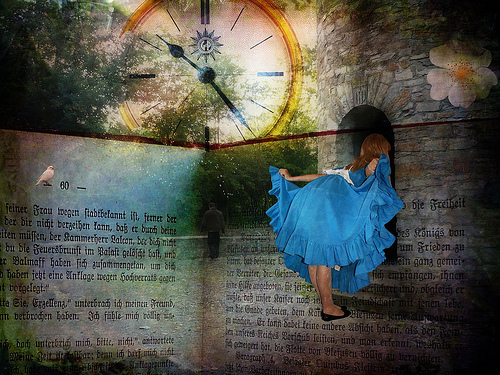
by Julienne Givot | Jan 8, 2015 | Podcast Interviews, Podcasts |
Subscribe in iTunes
My co-host Cyndera and I are very excited to announce a new format for the Archetypal Tarot Podcast. We will be revisiting the Major Arcana but this time with special guests giving their insights on the themes and ideas presented by these ancient yet totally relevant archetypal stories.
We start the new year off on the topic of Passion, it’s nature and how we can actually nurture a sense of vitality and adventure in our lives.
 Our guest for this edition is an author who has literally written the book on the nature and nurture of passion, Gregg Levoy. Gregg is the author of the best selling Callings: Finding and Following an Authentic Life and puts his keen sense for creative insight as well as a Storyteller’s magic into his new book Vital Signs: The Nature and Nurture of Passion.
Our guest for this edition is an author who has literally written the book on the nature and nurture of passion, Gregg Levoy. Gregg is the author of the best selling Callings: Finding and Following an Authentic Life and puts his keen sense for creative insight as well as a Storyteller’s magic into his new book Vital Signs: The Nature and Nurture of Passion.
Where his first book Callings was about finding passion, Vital Signs picks up on the why’s and how’s of losing our sense of passion & vitality and how to regain a passionate life with creativity and abundance. We love this new book and recommend you get a copy – it’s available at Barnes & Noble, Amazon and many fine bookstores. Visit Gregg’s site and check out all of the resources in “Wow!” images, books, music and films to help you connect to passion and excitement. http://gregglevoy.com
Ultimately, passion is a life skill—a stance—that helps bring vitality to all our engagements: from work, family and school life, to creative, social and spiritual life. And it’s a survival mechanism—critical to health and well-being—because your attachment to life depends on your interest in it.
-Gregg Levoy
 We think you will really enjoy Julienne’s conversation with Gregg about passion, creativity, the call of the wild, the archetype of the Fool, Vampires, Zombies, Intuition and the practice of living our lives fully.
We think you will really enjoy Julienne’s conversation with Gregg about passion, creativity, the call of the wild, the archetype of the Fool, Vampires, Zombies, Intuition and the practice of living our lives fully.
Passion is an unstable element and will naturally degrade over time but some very simple, yet powerful practices have the ability to heat things up again. Not only is passion something we start to miss over time but it’s important to our overall health. As Gregg says in our discussion “Our attachment to life depends to a great degree to our interest in it.”. Without interest, everything fades, including our health. It’s no wonder Zombies and Vampires have been of such an interest in the last few years – we fear the life being sucked out of us by routine and a lack of creativity.
You can listen to the entire podcast below or subscribe to the podcast in iTunes and never miss an episode. We have a very exciting line up of authors, teachers and creators lined up for future episodes.
Right-click and save this podcast to your device.
Gregg’s List of 5 Things You Can Do To Beef Up The Passion & Quality of Your Life:
1) Pay attention to what is trying to emerge in your life.
2) Remember that you have a ‘use by’ date.
3) Come up with a bucket list. (Check out this from Artist Candy Chang: Before I Die)
4) Always give yourself something to look forward to.
5) Look for where you’re restless – ask yourself: What wants to move? And where does it want to go?
Julienne’s addition:
6) Turn something upside down. (The Trickster archetype can be very useful in this.)
Want to email us about the Archetypal Tarot Podcast? We’d love that! ATPodcast@archetypist.com
Related articles & podcasts:
Harvesting From This Year’s Season
The Tower & Lightning Liberation
The Archetypal Tarot Podcast is a production of Both/And Media.
I Feel It All by Feist – An anthem for a full & passionate life.

by Julienne Givot | Feb 9, 2011 | All Articles, Archetypal Characters, In search of wisdom blog, Real Life Archetypes |

Darryl “DMC” McDaniels
“Everything happens for a reason.” Says Darryl “DMC” McDaniels, who is one third of the pioneering rap group Run DMC and one of the most influential rap artists of all time. At the age of 35, DMC made a startling discovery and suddenly, everything he thought he knew about himself had changed. He told his story on stage at a Moth Storytelling event which was aired on the radio and subsequently published as a podcast. Info on subscribing to the free podcast here.
DMC’s story caught my attention because it’s about purpose, destiny and the seemingly small things that can lead us to it’s discovery. Even something as simple as hearing a song on the radio. The archetypes of the Artist, Midas, Angel and Orphan feature prominently in this true story. I’ve noted them parenthetically.
Darryl had everything he wanted (Midas). An incredible career, top selling records, fame, money, respect, a healthy family, good upbringing – the whole thing and yet he was depressed (Artist). While on tour in Europe he began to have suicidal thoughts. He could sum up all of the things that were wonderful in his life but he couldn’t connect it all together, something was missing. He decided to put off thoughts of suicide until the tour was over. When he returned home, he got in the limo and heard a song on the radio called “Angel” by Sarah McLachlan. As he listened to the song, something in him said “life is beautiful, it’s good to be alive”. (Angel)

Image via Wikipedia
For the next year, listening to Sarah McLachlan’s music was all that kept him going. His obsession with her music confounded his friends and colleagues. He is a rap star after all and what is he doing just sitting at home listening to some chick folk singer? His manager convinced him to leave the house to attend a music industry party. DMC wasn’t interested in going, but agreed to go for an hour. Even though he was surrounded by pop luminaries like Stevie Wonder and Alicia Keyes, DMC couldn’t care less (Orphan). He was counting the minutes until he could leave when Sarah McLachlan walked into the room. He finally had the opportunity to meet her and tell her how much her music meant to him. To hear him tell it, he came off like a bit of a lunatic praising her music and how it changed his life. She demurred and thanked him saying “That is what music is supposed to do”. (Much like an archetypal Angel would do.)
Three years go by and Darryl is still trying to figure out what he is missing. He decides to write an autobiography and calls his Mom to ask her about when he was born. His perspective completely pivots when his parents tell him that he was adopted. (Orphan)
“Now if you think there is really a time to commit suicide, finding out you’re adopted at age 35… but right then and there something happened. I remembered, when I asked myself ‘am I here to be DMC?’ and summed it up, that, was the missing piece, the void was filled. I really wanted to kill myself but then I remembered something, Sarah McLachlan said ‘that’s what music is supposed to do’. So I said ok before I get suicidal, depressed and do something real crazy, I need to write a record that’s going to help that little orphan or that little kid in foster care who thinks they threw me away, I’m worthless, I mean nothin…because I may be DMC but what I really represent is purpose and destiny. I need to make a record that will inspire somebody the way Sarah McLachlan inspired me.” ~ Darryl “DMC” McDaniels
What this revelation brought about was just that. In fact he contacted Sarah McLachlan and they recorded a hip hop mash up of Harry Chapin’s “The Cat’s in the Cradle” together and dedicated it to “every life and every soul touched by the reality and experience of adoption“. Just as Darryl was leaving the recording studio Sarah said “I’ve got to tell you something. I was adopted too, and I didn’t know that.” Everything happens for a reason.
In 2006 Darryl “DMC” McDaniels was presented with the Congressional Angels in Adoption Award for his work with children in foster care promotion of adoption.
Click to watch the video of “Just Like Me” by DMC featuring Sarah McLachlan
Click to watch the video for Sarah McLachlan’s “Angel”

by Julienne Givot | May 17, 2010 | All Articles, Archetypal Characters, In search of wisdom blog, Real Life Archetypes |
This is a true story about one woman, the Storyteller archetype and it’s power for both good and tragic. I came across it on a podcast recording from The Moth which is a not-for-profit storytelling organization.

photo by Eddi
When Nancy Finton was in her early 20’s she had a job as a bartender in New York City. She tells of riding the subway home late at night and walking along dark streets making up stories about how she would defeat any attacker who came her way. Sometimes she would walk with such belief in her own goodness that she imagined that no one would dare hurt her. She relates how these stories would make her feel safe and how they had seemingly worked as she had so far never been assaulted.
A few years later, she was living in Norway and was attacked when walking home from a bar late at night. She escaped the would-be rapist by talking to him, telling him that this was not what he wanted, not really, and asking him about himself. In trying to get his story from him, she disarmed him (figuratively) and got home safely.
A week later she heard a news report that a woman had been raped in the same place where she had been attacked. She had not reported her incident because she told herself (another story) that since she had not seen his face it was useless to report it. The truth was that she was embarrassed that she had taken such a risk walking home alone so late and she feared that the police would mock her. She was also feeling good about herself that her power to tell stories had again kept her safe. She admitted that what she had been telling herself had blinded her to the fact that it was not just her story. The story included others – including the girl who had been raped and who she could have possibly spared by stepping out of her story and taking the opportunity to report it.
There are several layers here that illuminate just how powerful the Storyteller archetype can be:
- She used the Storyteller archetype to feel confident and then when threatened, to distract her attacker.
- The Storyteller also kept her inside her own story and blinded her to the greater context of what happened.
In an act to relay how she herself got ‘storyfied’ (got caught up in her own story) the author chooses to share it via a medium that attracts other Storytellers. I have no way of knowing her real intentions, but it strikes me that her ability to communicate the whole story – including the crappy bits about her actions – has a curative power for her. Could it be catharsis? A cautionary tale? Maybe both. Either way it’s a powerful and real example of the Storyteller in action.
References
Films: Rod Taylor as Sean O’Casey in Young Cassidy; Laurence Harvey and Karl Boehm in The Wonderful World of the Brothers Grimm; Judy Davis as George Sand in Impromptu; Barbara Bel Geddes in I Remember Mama.
Fiction:Lord Jim by Joseph Conrad; Beloved by Toni Morrison; A Portrait of the Artist as a Young Man by James Joyce.
Religion/Myth: Homer (combined history and mythology in the action adventures of the Odyssey and the Iliad); Blaise (Welsh storyteller who in Arthurian legend became Merlin’s scribe); Thamyris (Thracian minstrel who won so many contests that he challenged the Muses themselves, and in return for his presumption was struck blind).
Fairy Tales: Arabian Nights (Tales of Sheherezade)

 Our guest for this edition is an author who has literally written the book on the nature and nurture of passion, Gregg Levoy. Gregg is the author of the best selling Callings: Finding and Following an Authentic Life and puts his keen sense for creative insight as well as a Storyteller’s magic into his new book Vital Signs: The Nature and Nurture of Passion.
Our guest for this edition is an author who has literally written the book on the nature and nurture of passion, Gregg Levoy. Gregg is the author of the best selling Callings: Finding and Following an Authentic Life and puts his keen sense for creative insight as well as a Storyteller’s magic into his new book Vital Signs: The Nature and Nurture of Passion. We think you will really enjoy Julienne’s conversation with Gregg about passion, creativity, the call of the wild, the archetype of the Fool, Vampires, Zombies, Intuition and the practice of living our lives fully.
We think you will really enjoy Julienne’s conversation with Gregg about passion, creativity, the call of the wild, the archetype of the Fool, Vampires, Zombies, Intuition and the practice of living our lives fully.




